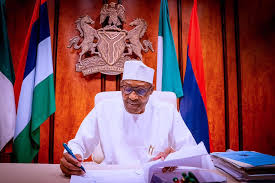President Muhammadu Buhari announced intentions to establish a healthcare fund to assist up to 83 million impoverished individuals who cannot afford insurance charges at the signing of a universal health coverage law.
Nigeria, with its 200 million people, is trying to overhaul its healthcare system, but money has been a big issue, as has the COVID-19 pandemic, which has stretched the country’s already-scarce staff.
According to the latest World Bank data, the West African country has 0.4 doctors per 1,000 people, which is lower than the global average of 1.8 doctors. It also has a nascent health insurance industry that has failed to enroll new members.
According to his administration, Buhari signed a National Health Insurance Authority Bill into law on Thursday, aiming to guarantee universal healthcare access.
Analysts have raised concerns about where the money for the new law will come from. Nigeria has struggled to cover its massive budget deficit, with subsidies on imported gasoline and debt service eating up the majority of government earnings.
“A vulnerable group fund would be established for the enormous number of vulnerable folks who are unable to pay health insurance premiums,” Buhari added.
According to Buhari, the fund will include a basic healthcare provision fund, a health insurance tax, a special intervention fund, as well as any investment proceeds, contributions, and gifts to the health authority.
In the face of rising insecurity, Africa’s most populous country faces a diminishing labor market, double-digit inflation, and sluggish GDP. So far, plans have been mostly funded by contributions from millions of people who work for the government or large corporations.
Analysts say there are unexplored prospects in the informal sector, but the schemes must overcome problems such as healthcare pricing and payments to hospitals and patients in order to be profitable.




















